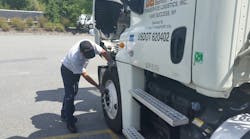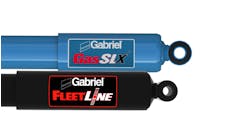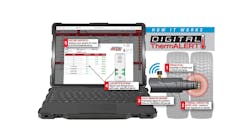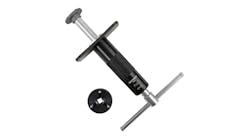How do you validate a return on investment (ROI) from accident mitigation? When you avoid an accident you don’t know how much revenue may have been lost because of unforeseen downtime, and how much you didn’t spend on repairs or hospital bills.
This topic was one of the talking points at a recent panel discussion during Heavy Duty Aftermarket Dialogue this past January.
The conversation circled around the increased specing of air disc brakes in heavy duty fleets, and validated why this adoption continues.
The reasons for specing air disc brakes over drums haven’t changed — reduced stopping distance, almost no fading or pulling, longer service intervals, less time to perform basic maintenance, to name a few — as more scrutiny continues to be placed on keeping operations lean and reducing costs. Not to mention the added pressure of adhering to Compliance, Safety and Accountability (CSA). Since air disc brake adjustment is done internally, it results in fewer CSA violations by eliminating out-of-adjustment situations.
A recent reader study on braking systems, conducted by Fleet Maintenance, also confirms continued air disc brake adoption, with 26 percent of respondents indicating they spec air disc brakes for their fleet.
While air disc brakes have been available on heavy duty vehicles for some time, when the cost and weight of the product come down and the decrease in accidents and vehicle downtime can be validated, adoption will continue to rise.
Validating changes
While air disc brakes was a focus for this discussion, ROI on safety technologies in general can be more challenging to confirm. This is one of the reasons we have seen such an advancement in the adoption of data analytics when it comes to vehicle and shop operations.
Data has significantly improved many aspects of fleet maintenance: not only can it help confirm the return on safety technologies, it can also make processes like preventative maintenance (PM) and technician schedules more efficient.
In this month’s cover story (page 10), we look at the process of how to evaluate and implement different strategies that help increase overall shop efficiency, focusing on the use of data analytics to improve operational processes.
New safety products and procedures
If you haven’t quite reached the point of spec’ing the latest vehicle safety technologies in your fleet but you want to know more, our editorial team spoke with a number of different suppliers focused on providing technology that promotes and enhances safety while on the road. We talk about the different safety systems currently available, and the (somewhat unsurprisingly) minimal maintenance that goes into many of these systems.
Speaking of safety, are you familiar with lockout and tagout procedures? Depending on your operation, you likely follow many Occupational Safety and Health Administration (OSHA) guidelines that are regularly reviewed and enforced to ensure the safety of your employees. This month we cover another accident mitigation technique — creating a formalized lockout/tagout procedure when working on vehicles.
Many accidents are avoidable with the right processes, tools and knowledge. But, it’s inevitable that accidents will happen. When they do, it’s important to learn from those mistakes. Our regular Management columnist Joel Levitt shares his input on the “problem” paradox — and why you should take steps to learn from what happened to help avoid the issue in the future.
I hope throughout this issue you’ll find valuable information to help you run a more efficient operation, taking into consideration aspects of your business you may not have thought about previously. As always, I welcome your thoughts and comments.




